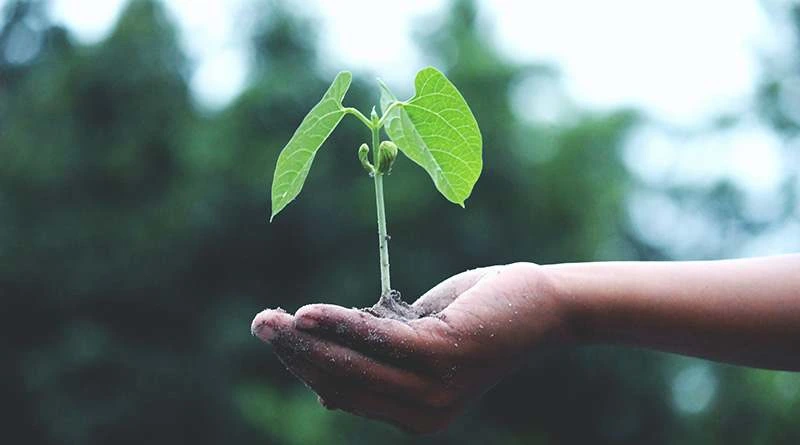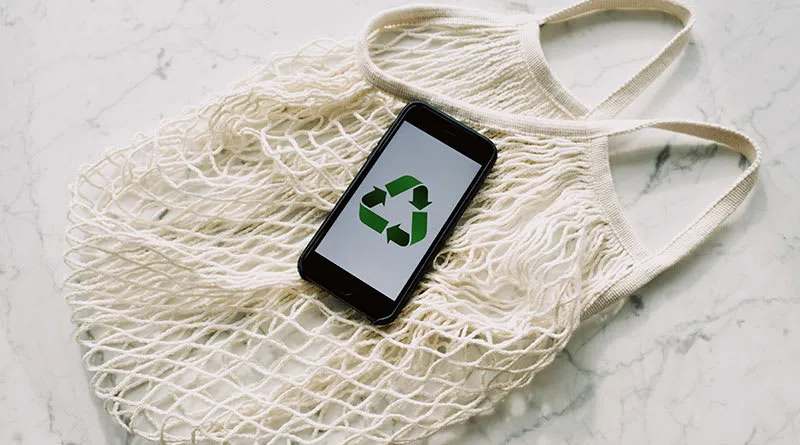Eco-Actions: Their Unknown Virtues
Eco-Actions: Their Unknown Virtues
The eco-friendly actions suffer, despite themselves, from numerous clichés. Too restrictive for some, not effective enough for others, yet eco-actions possess many unknown virtues that need to be highlighted in order to better understand them.

©Akil Mazumder
What is an eco-action?
Eco-actions are small ecological habits to adopt on a daily basis, whether it's reducing water consumption, buying less but better by selecting items made from eco-friendly materials, consuming locally, or saving energy. There are numerous solutions and proposals in this field.
Eco-actions and guilt
It's impossible to talk about eco-actions without linking them to the traditional guilt-tripping of consumers who often don't have the possibility to drastically change their lifestyle overnight. However, let's remember that the wealthiest households are the ones who pollute the most according to a study from the World Inequality Lab reported by the newspaper Les Echos, and that lower-income classes are often the first to unintentionally implement eco-actions, especially concerning reducing food waste or lowering their heating consumption for the sake of saving money.
Ultimately, it's not households, but rather large corporations, especially those producing fossil fuels, that are at the root of global pollution issues, as asserted by this list of the twenty most polluting companies in the world.
Despite all of this, the injunctions to eco-actions are unfortunately abundant and can often prevent some individuals from seriously engaging in them out of fear of not measuring up, or due to fatigue from moralizing lecturers.
Eco-actions and greenwashing
Sometimes, brands may not tell the whole truth to the consumer. In addition to sometimes being accused of greenwashing, these brands may use labels containing deliberately vague or imprecise information to deceive consumers.
In another area, it is difficult to keep an item for years in the era of planned obsolescence. Despite promises from manufacturers claiming to become more virtuous, brands like Apple no longer repair their products dating back barely a decade.
Are eco-actions useless for protecting the environment?
It is useful to specify that eco-actions and all individual actions in their entirety are nothing without genuine political and collective will. Thus, one can do their part, which is not useless and even indispensable when we know that the Western lifestyle is responsible for the famous 'Earth Overshoot Day' which indicates the date when we consume more resources than the Earth can produce in one year. In 2023, the date was August 2, according to the WWF.
According to Carbone 4, combining changes in habits with public action allows for a 20% reduction in carbon footprint for each individual. This proves that, despite all the goodwill in the world, our way of life escapes us enough that we do not have control over the majority of the CO2 we produce. Eco-actions or not.
There is still a lot that need to be done : To establish the rules that allow for redirecting investments into decarbonized sectors, conditioning trade agreements on climate if necessary, or even leading a large-scale renovation plan for residential and tertiary buildings.
Can an eco-responsible France solve global climate issues?
One of the most popular counterargument when it comes to reducing greenhouse gas emissions is that France and Europe contribute very little to climate change compared to large countries like the United States or China, for example.
However, it is necessary to take into account the emissions produced by France outside its borders, particularly in terms of financing fossil fuels by French banks, as also highlighted by the NGO Oxfam.
It is therefore possible to spend money more wisely on quality products, to be eco-friendly in everyday life, but what to do when those who manage your money use it to finance climate-harming projects? Once again, the consumer does not have full control over the situation.
The various benefits of eco-actions in everyday life
It is always difficult to change habits, especially if we believe we are losing out by doing so. However, it is important to know the concrete benefits of a more ecological consumption, as ecology itself contains many virtues: keeping us healthy, taking care of our wallet, and even our solidarity system! How can eco-actions help us in our daily lives? Let's take a quick look.

©Ready Made
► Simple eco-actions to save money
The amount of food waste in the West is quite spectacular, with 10 million tons of food wasted by the French. And this waste is as catastrophic for our economies as it is for the planet.
In a world of abundant consumption, it's easy to think that we're saving money because everything presented to us is discounted, often on promotion. However, the frequency and quantity of items purchased actually result in significant money losses. For example, 30 kg of food is thrown away per person each year, of which 7 kg are discarded and never opened, according to the Ministry of Ecological Transition.
Low-cost products also have a limited lifespan and can sometimes turn into unforeseen and urgent expenses, weighing on the budget. According to Statista, we replace our phones every 2 to 3 years, our computers every 2 to 5 years, and our televisions every 7 to 10 years. Over a lifetime, this represents significant expenses for devices worth several hundred euros.
Nowadays, we have the reflex to buy quickly to save money rapidly, but this often turns out to be a trap. Because in the long run, the consumer actually loses money. The share of unworn clothes in France amounts to 114 euros. That's as much money lost for 30 kg of clothes purchased each year. How many clothes are worn once, twice before going back to the closet? Mystery, but what is certain is that these clothes also represent a certain loss.
💡 What are the solutions ?
The easiest eco-action to implement to ensure that an item won't break down along the way is to look for items with a good repairability index. This helps avoid last-minute expenses when an item breaks down without the immediate possibility of replacement. Other applications like Geev allow for bartering between individuals without spending money, and therefore without the notion of expenditure or profit. Meanwhile, the Selency application offers a genuine online flea market to promote a truly circular economy with vintage products.
This disposable mindset also goes hand in hand with the fact that we have little attachment to goods that we think are easily and quickly replaceable. Reconnecting with attachment to things can therefore be healthy for our wallets!
Another easy eco-action to make is to use applications such as Nous anti-gaspi or the most well-known of all, Too Good To Go, which allow you to buy food at a reduced price to prevent edible items from ending up in the trash. Many anti-waste stores also offer competitively priced items because they sell goods that would otherwise be thrown away if not purchased. Savings for the wallet and a good deed against waste.
In another vein, it's possible to save money on your water bill by using a faucet aerator to reduce the flow and therefore the amount of water used.
To save energy, LED bulbs, which are much less energy-intensive than traditional bulbs, can help reduce the electricity bill. For those on a tight budget, low-energy bulbs or compact fluorescent lamps (CFLs) can also be a wise choice.
► Eco-action in the service of solidarity
By forcing the most modest populations in Western countries to consume the labor of countries in the Global South, we break solidarity among human beings, especially among workers. Low-quality clothing, for example, is particularly polluting, especially for the poorest countries where they end up at the end of their life cycle.
The toxicity of denim dyeing also has a global impact on those who produce them, as is the case in China according to the report "Worn Out!" by the collective Ethique sur Étiquette, which works for workers' rights worldwide.
Many brands with a "girl power" label nevertheless use precarious labor from poorer countries, mostly exploiting female employees in conditions leading to the worst disasters, as was the case with the collapse of the Rana Plaza in Bangladesh.
In the DRC, 40,000 children enable our smartphones to function.
As for solidarity closer to home, consuming better also allows to support associations with quality donations when individuals decide to offer clothing or items they no longer use. Indeed, Actu.fr reminds us that the Secours populaire has announced a significant decrease in the number of clothing items the association is able to consider, as the low quality of these items does not allow them to be offered to their beneficiaries or to be sold in their shop. Or because these clothes simply end up on Vinted.
💡 What are the solutions ?
First eco-action : recycle your clothes to acquire a different sense of style! Do you know about the minimal wardrobe? This wardrobe contains only simple and timeless pieces. The secret is to buy timeless pieces that go with everything so you are not limited by the cut or color of a garment. This way, you can create a multitude of looks with few clothes.
For this second eco-action, the independent label SLOWEARE offers a catalog to help consumers navigate ethical fashion. The marketplace WeDressFair also offers its own selection of brands with various ethical labels that can be trusted blindly.
Many second-hand websites also exist: Second hand Zara, Kiabi, Modalist, Once Again, Vide Dressing, Vestiaire Collectif, etc... but be careful, as mentioned earlier, an investigation by Capital reports that Vinted can become a real business that is no longer eco-friendly. Second-hand can sometimes turn into a temptation leading to more consumption. Because of prices that defy all competition, many consumers might be tempted to refresh their wardrobe (too) often. Once again, it's a financial trap, for items that the buyer is not even sure to wear.
Yes, being ethical is not easy, but the solution remains the same: sticking to what we really want, no matter the brand from which we buy. Trying to keep our clothes for as long as possible is always a good idea.
►Individual eco-actions for health
Our consumption habits are also harmful to our health on several fronts.
The excessive consumption of red meat is the cause of numerous diseases, including cancers.
Intensive agriculture is responsible for a portion of deforestation, the destruction of natural habitats, and biodiversity loss, exposing us to a higher risk of pandemics, warns journalist Marie-Monique Robin in Paris Match.
According to a study by Inserm, the link between pesticides and the increase in various diseases is becoming increasingly tight, particularly concerning Parkinson's In addition to budget-related issues, excessive consumption also leads to problems that can have destructive effects on the mental health of buyers, as reported by an English-language study published on Medical News Today.
Add to this the various harmful substances found in the various products we buy on a daily basis, from beauty products to household items to clothing, and it can often be difficult to protect one's health on a day-to-day basis.
💡 What are the solutions ?
Several eco-actions can help improve health.
For makeup and wellness products, comparators are available, notably on the UFC Que Choisir website or on the most well-known apps of their kind: Yuka, or Foodvisor. However, be aware that the rating criteria of these apps are not entirely transparent and can sometimes be arbitrary.
Other more reliable labels offer their own list of certified products. This is the case for Cosmébio, from the French association of the same name, where all products contain a minimum of 95% natural ingredients and without any controversial substances or potential endocrine disruptors. The Slow Cosmetics label, also from the association of the same name, offers all ranges of products that meet their charter, from environmental requirements to responsible marketing criteria.
To protect oneself from the toxic substances in clothing, the Eoko-Tex label guarantees that no dangerous chemicals have been used in the materials contributing to the manufacturing of the worn garment.
For a better diet, it's essential to first navigate through seasonal fruits and vegetables. Many downloadable charts can be found on the internet, some of which are directly from environmental NGOs. It's also possible to read the "Future 50 Foods" report which outlines a healthy diet for both health and the planet.
To find local producers and fresh products directly from the garden or farm, several interactive maps are available on the internet: Frais et Local, Bienvenue à la Ferme, Le Potiron, the interactive map by UFC Que Choisir, and the map of producers by Agap Pro.
For household products, reliable labels also exist to navigate through everyday products. The European Ecolabel and its exclusively French version NF Environment offer several guides for responsible and ecological purchasing in various domains. The French company specialized in sustainable development, Ecocert, gathers many of its labels on its website across all areas of responsible consumption.
► Eco-actions for raising awareness among leaders and businesses
Ecology should primarily highlight the difficulties faced by the most modest and the inequalities between individuals, such as the lack of public transportation to replace cars, or a purchasing power too low to afford a new vehicle. The challenges for the less fortunate to eat properly, or the reality of inadequate housing and its poor insulation.
Eco-actions can therefore help shed light on what still needs to change. It is pointless to be cautious about consumption if the polluting heating system in the home is not replaced by its owner, and there's no use in trying to "bundle up" if one lives in a thermally inefficient home.
Thus, the most important virtue of these eco-actions ultimately remains to call upon leaders regarding the fact that the public is ready to engage in a major transition towards a more virtuous economy for all. Truly ecological decision-making could thus positively impact the consumer, as seen in the example of free public transportation in several cities across the country.
Regarding energy renovation as well, it is possible to mobilize policymakers: during the vote on the 2023 budget, an amendment proposing to allocate 12 billion euros to thermal renovation of housing was proposed by the NUPES before being adopted by the National Assembly. However, this amendment was subsequently removed following the use of Article 49.3 by former Prime Minister Elisabeth Borne. This is a sign that the fight must still be waged, but that some elected officials are willing to listen.
Becoming an eco-citizen is therefore also committing to social justice.
These few lesser-known virtues are just some of the many advantages of eco-actions, and more broadly of ecology, which can allow us to live and consume better. However, for this, perhaps we need to change the ecological discourse to show this pragmatic side that is all too often forgotten.
(Originally written and published in French)
Like this project
Posted Mar 24, 2025
Eco-friendly practices are often subject to a number of clichés. However, they possess many little-known virtues, which we are highlighting.
Likes
0
Views
3






